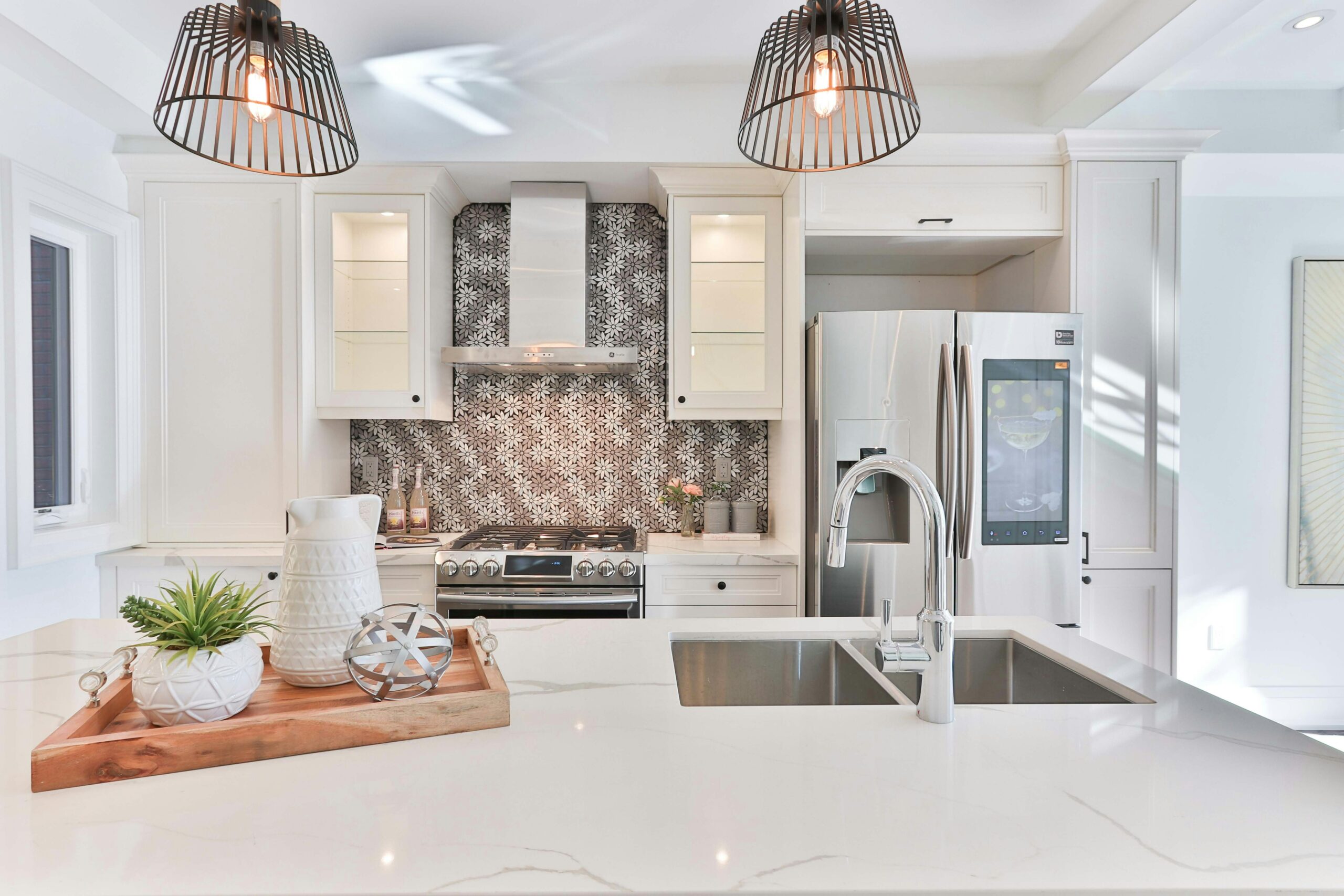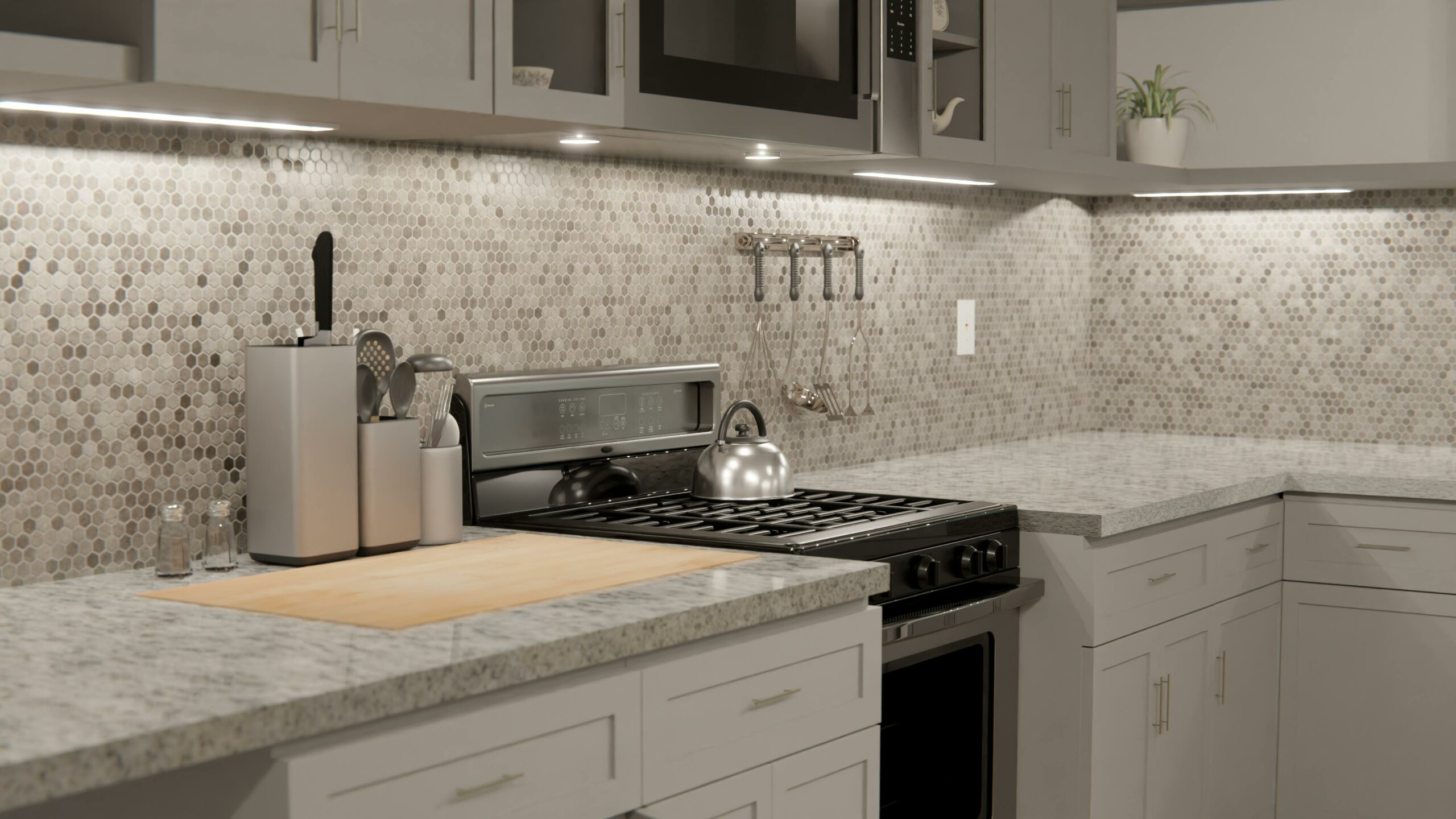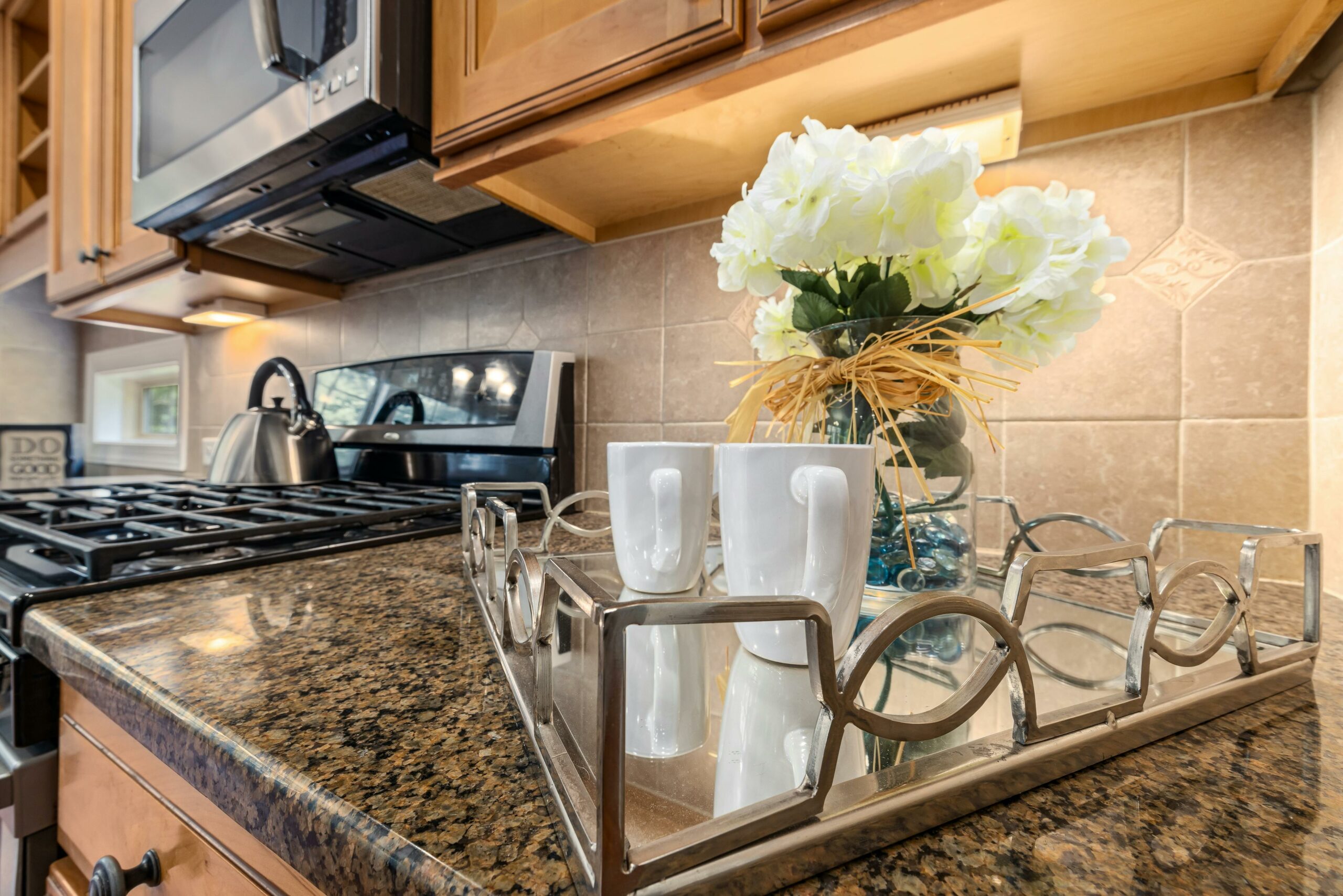When planning to redesign your kitchen or bathroom, one element you will surely be considering is the types of countertops to use. The countertop, a critical component in any home, not only serves a functional purpose but also contributes to the aesthetic appeal of the space.
The marketplace today offers a wide variety of materials for countertops, each with its unique set of advantages, disadvantages, and costs. From natural stones like granite and marble to engineered materials like quartz, laminate, and concrete; the choices can be overwhelming.
Through this article, we aim to make your decision-making process easier. In the subsequent sections, we will delve deep to understand different varieties of countertops, explore the various materials they are made from, and examine their pros and cons.
Special focus will be given to popular types of kitchen countertops, examining their durability and suitability for bathroom use. The article will also shed light on eco-friendly options and provide a comprehensive cost analysis of different countertop materials. We will top off with general guidelines for maintaining various countertop types and some design inspiration for contemporary styles.
Let’s embark on this enlightening journey and make your countertop selection a breeze.
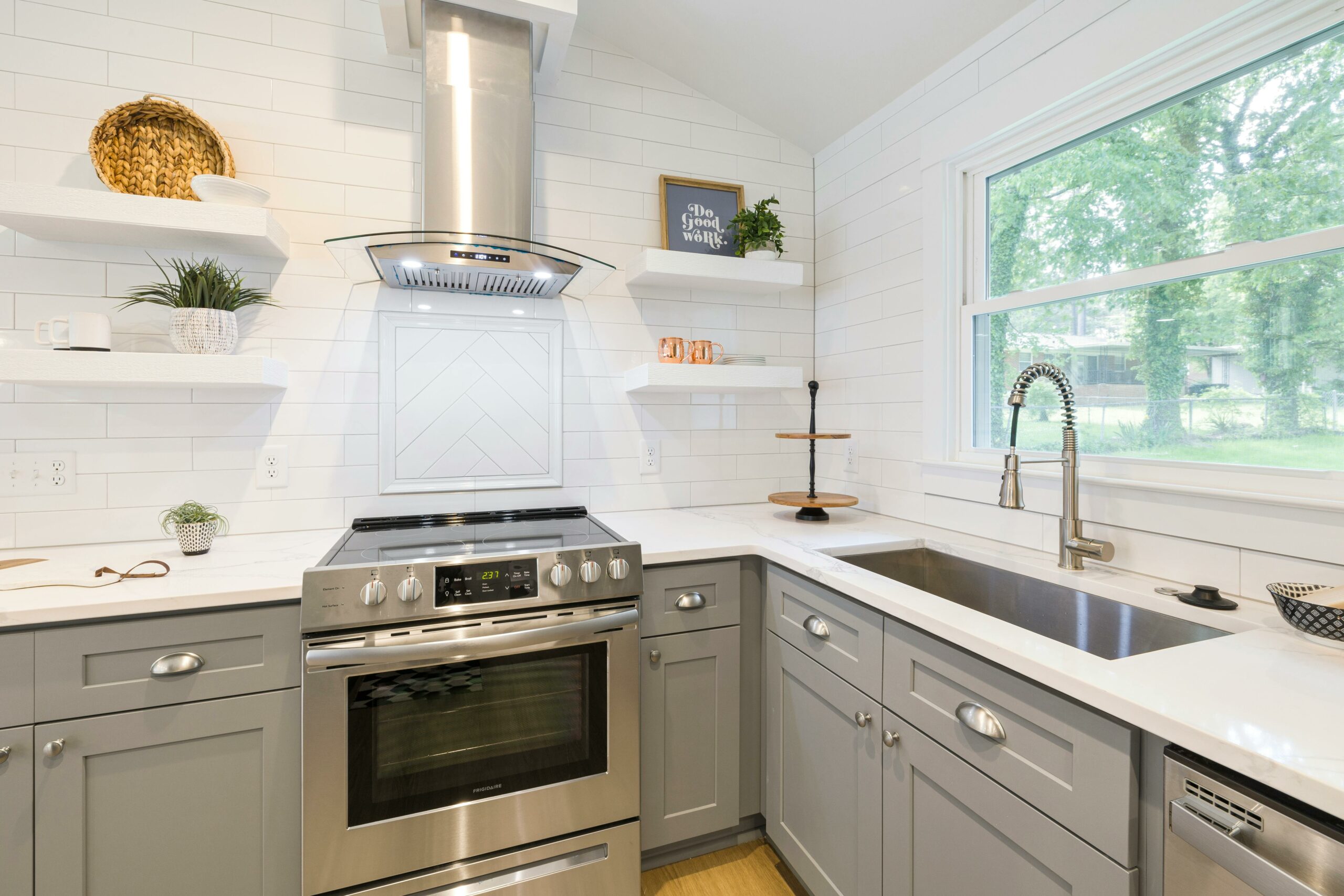
Understanding Different Types of Countertops
When it comes to choosing the right countertop for your kitchen or bathroom, there are a plethora of options available. Each type of countertop material has its own unique characteristics, advantages, and disadvantages. Understanding the different types of countertops can help you make an informed decision that suits your needs and preferences.
Exploring Various Materials for Countertops
Countertops can be made from a variety of materials, including natural stone, such as granite and marble, engineered stone, like quartz, solid surface materials, such as acrylic and polyester, laminate, wood, and even concrete. Each material offers its own set of features and aesthetics, making it important to consider your lifestyle, budget, and design preferences when choosing a countertop material.
Advantages and Disadvantages of Common Countertop Types
It’s essential to weigh the pros and cons of each countertop material before making a decision. For example, natural stone countertops like granite and marble are known for their durability and beauty but require regular sealing and maintenance. On the other hand, laminate countertops are affordable and easy to clean but may not be as durable as other materials.
Popular Types of Kitchen Countertops
When it comes to kitchen countertops, some materials are more popular than others. Granite, quartz, and solid surface materials are commonly chosen for their durability, heat resistance, and wide range of colors and patterns. These materials can enhance the aesthetics of your kitchen while providing a functional and long-lasting surface for food preparation.
Evaluating the Durability of Different Countertops
The durability of a countertop is an important factor to consider, especially in high-traffic areas like kitchens and bathrooms. Some materials, like granite and quartz, are highly resistant to scratches, stains, and heat, while others, like laminate and wood, may require more care and maintenance. Evaluating the durability of different countertop materials can help you choose a surface that will withstand daily use and last for years to come.
Types of Countertops Suitable for Bathrooms
Bathrooms have their own unique set of requirements when it comes to countertops. Materials that are resistant to moisture and humidity, such as quartz and solid surface materials, are often preferred for bathroom countertops. These materials offer a hygienic and easy-to-clean surface, making them ideal for the bathroom environment.
Eco-friendly Countertop Options
For those who prioritize sustainability, there are eco-friendly countertop options available. Materials like bamboo, recycled glass, and concrete made with recycled materials offer environmentally friendly alternatives to traditional countertop materials. These options not only reduce the environmental impact but also add a unique and stylish touch to your space.
Cost Analysis of Various Countertop Materials
The cost of countertops can vary greatly depending on the material chosen. Natural stone countertops tend to be more expensive, while laminate and wood countertops are more budget-friendly options. It’s important to consider your budget and long-term investment when analyzing the cost of different countertop materials.
Maintaining Different Types of Countertops
Proper maintenance is essential to keep your countertops looking their best and prolong their lifespan. Different materials require different care routines, such as regular sealing for natural stone countertops or avoiding harsh chemicals for solid surface materials. Understanding the maintenance requirements of different countertop types can help you keep them in optimal condition.
Countertops for Contemporary Design Styles
If you have a contemporary design style, there are countertop options that can complement your aesthetic. Materials like quartz, stainless steel, and concrete offer sleek and modern looks that are perfect for contemporary kitchens and bathrooms. These countertops can add a touch of sophistication and elegance to your space.
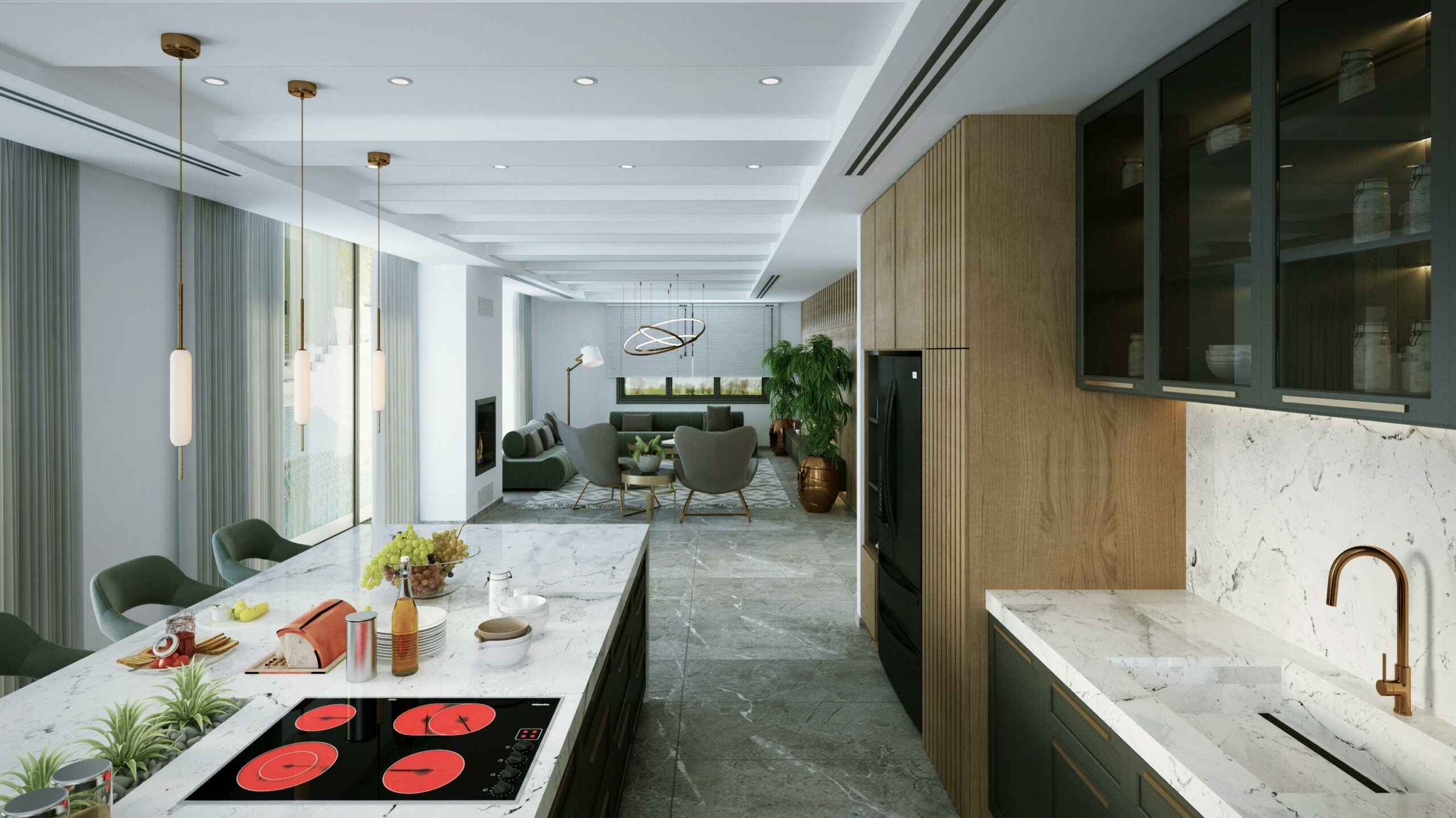
Exploring Various Materials for Countertops
When it comes to choosing the perfect countertop material for your kitchen or bathroom, there are a plethora of options available. Each material has its own unique characteristics, advantages, and disadvantages. In this section, we will explore some of the most popular materials used for countertops and discuss their features.
Granite
Granite countertops are a popular choice due to their durability and natural beauty. They are resistant to scratches, heat, and stains, making them ideal for high-traffic areas like kitchens. However, they require regular sealing to maintain their appearance and can be quite expensive.
Quartz
Quartz countertops are engineered stone surfaces made from a combination of natural quartz and resin. They offer a wide range of colors and patterns, as well as excellent durability and low maintenance. Unlike granite, quartz countertops do not require sealing and are resistant to stains and scratches.
Marble
Marble countertops are known for their elegance and timeless beauty. They have a unique veining pattern and come in various shades of white and gray. However, marble is a porous material and can be easily scratched or stained. It requires regular sealing and careful maintenance to preserve its appearance.
Butcher Block
Butcher block countertops are made from wood, typically maple or oak. They provide a warm and natural look to any kitchen. While they are durable and can withstand chopping and cutting, they are susceptible to water damage and require regular sealing and maintenance.
Stainless Steel
Stainless steel countertops are a popular choice in commercial kitchens due to their durability, heat resistance, and hygienic properties. They are easy to clean and maintain, but they can scratch and dent easily. They also have a modern and sleek appearance that complements contemporary design styles.
Laminate
Laminate countertops are an affordable and versatile option. They come in a wide range of colors and patterns, including designs that mimic the look of natural stone or wood. While laminate is resistant to stains and easy to clean, it can be easily scratched or chipped. It is not as durable as other materials and may need to be replaced after a few years.
Concrete
Concrete countertops offer a unique and customizable option for modern and industrial design styles. They can be cast in various shapes and sizes and can be stained or dyed to achieve different colors and finishes. However, concrete is prone to cracking and requires regular sealing and maintenance to prevent stains and water damage.
Tile
Tile countertops are a versatile and budget-friendly option. They come in a wide range of colors, patterns, and sizes, allowing for endless design possibilities. However, tile countertops can be prone to chipping and cracking, and the grout lines between the tiles can be difficult to clean and maintain.
These are just a few examples of the various materials available for countertops. When choosing the right material for your space, consider factors such as durability, maintenance requirements, aesthetics, and budget. Consulting with a professional can help you make an informed decision that suits your needs and style.
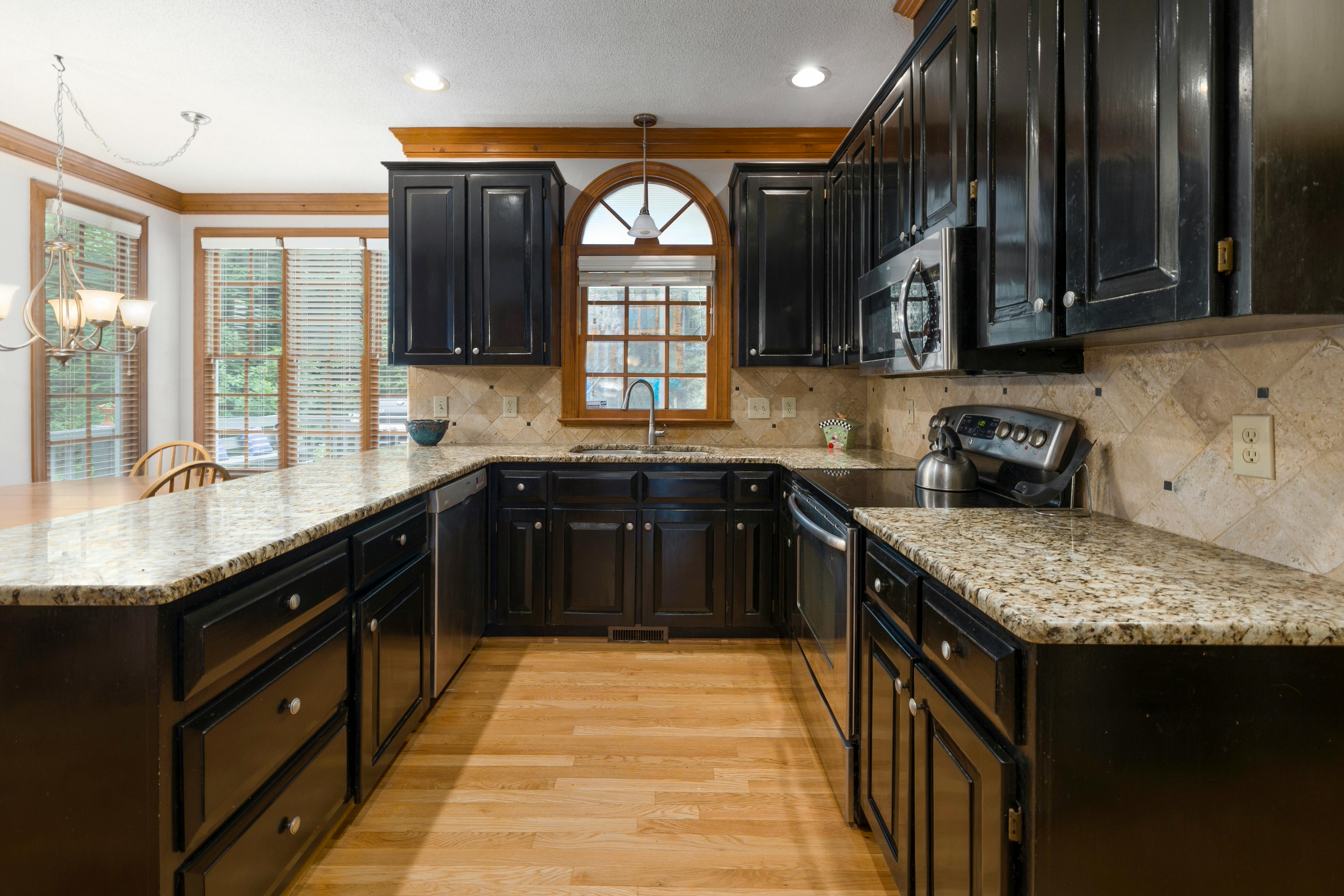
Advantages and Disadvantages of Common Countertop Types
When it comes to choosing the right countertop for your kitchen or bathroom, there are several options available. Each type of countertop material comes with its own set of advantages and disadvantages. Understanding these pros and cons can help you make an informed decision. Here are some common countertop types and their advantages and disadvantages:
1. Granite Countertops
-
- Advantages: Granite countertops are known for their durability and natural beauty. They are resistant to heat and scratches, making them ideal for busy kitchens. Additionally, granite countertops can increase the value of your home.
-
- Disadvantages: Granite countertops can be quite expensive compared to other options. They also require regular sealing to prevent stains and bacteria buildup.
2. Quartz Countertops
-
- Advantages: Quartz countertops are non-porous, which means they are resistant to stains and bacteria. They are also highly durable and require minimal maintenance. Additionally, quartz countertops come in a wide range of colors and patterns.
-
- Disadvantages: One of the main disadvantages of quartz countertops is their higher cost compared to other materials. They can also be prone to discoloration when exposed to direct sunlight for extended periods.
3. Laminate Countertops
-
- Advantages: Laminate countertops are one of the most affordable options available. They come in a variety of colors and patterns, allowing for customization. Laminate countertops are also easy to clean and maintain.
-
- Disadvantages: Laminate countertops are not as durable as granite or quartz. They can be easily scratched or chipped, and they are not heat-resistant. Additionally, laminate countertops may not add significant value to your home.
4. Solid Surface Countertops
-
- Advantages: Solid surface countertops offer a seamless and smooth appearance. They are resistant to stains and bacteria and can be easily repaired if damaged. Solid surface countertops also come in a variety of colors and patterns.
-
- Disadvantages: One of the main disadvantages of solid surface countertops is their susceptibility to scratches and heat damage. They may require regular maintenance to keep them looking their best.
5. Butcher Block Countertops
-
- Advantages: Butcher block countertops provide a warm and natural look to any kitchen. They are heat-resistant and can be sanded and refinished to remove scratches. Butcher block countertops are also eco-friendly.
-
- Disadvantages: Butcher block countertops require regular maintenance, including oiling to prevent drying and cracking. They are also prone to water damage and can be easily stained if not properly sealed.
Before making a decision, consider your budget, lifestyle, and personal preferences. It’s important to weigh the advantages and disadvantages of each countertop type to find the one that best suits your needs.
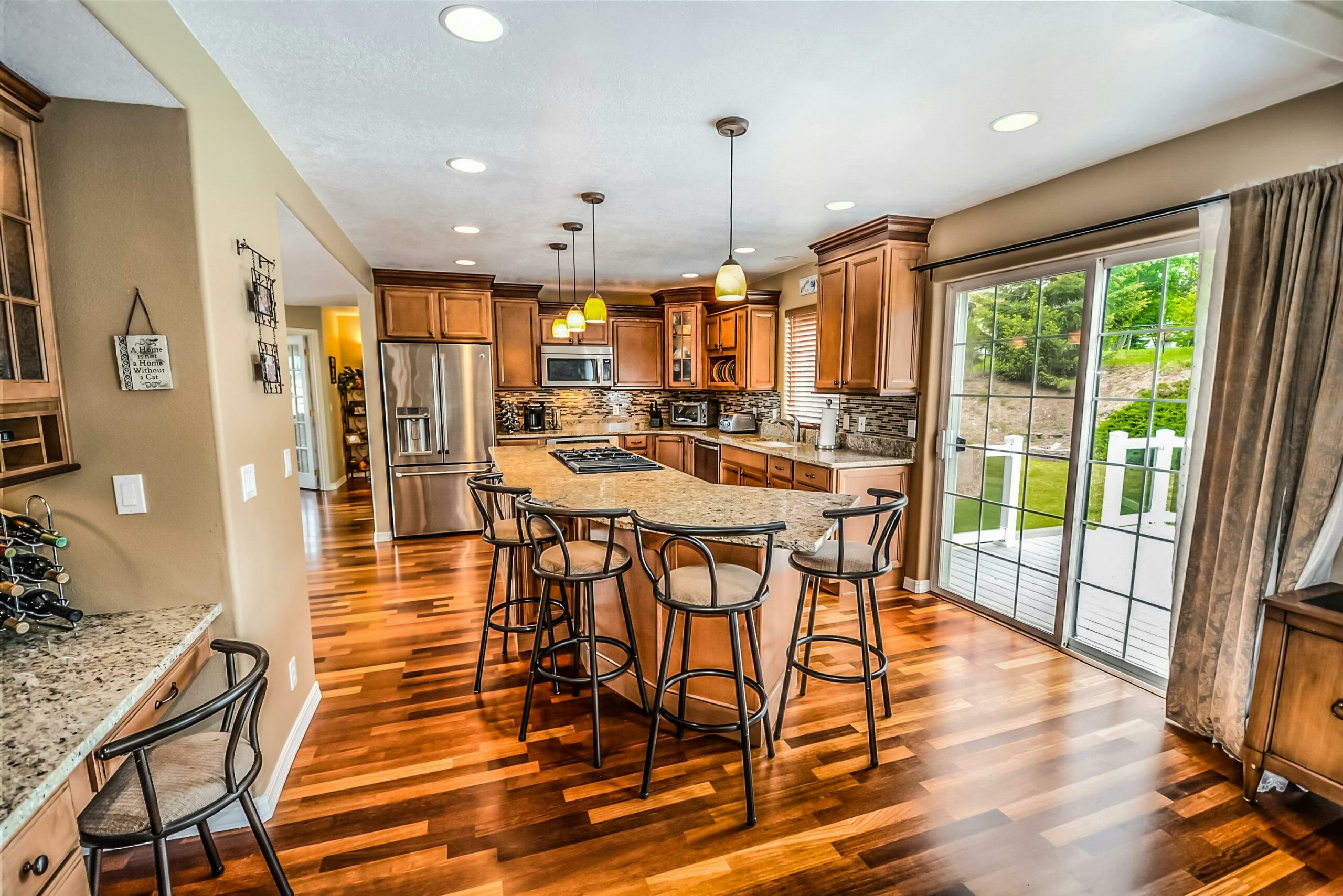
Popular Types of Kitchen Countertops
When it comes to choosing the right countertops for your kitchen, there are several popular options to consider. Each type of countertop material has its own unique features and characteristics that can enhance the functionality and aesthetics of your kitchen space.
1. Granite
Granite countertops are a popular choice for many homeowners due to their durability and natural beauty. These countertops are made from natural stone and are available in a wide range of colors and patterns. They are resistant to heat, scratches, and stains, making them an ideal choice for busy kitchens.
2. Quartz
Quartz countertops are engineered stone surfaces that offer the beauty of natural stone with added durability and low maintenance. These countertops are made from a combination of crushed quartz and resin, resulting in a non-porous surface that is resistant to stains and bacteria. Quartz countertops are available in a variety of colors and patterns to suit any kitchen style.
3. Marble
Marble countertops are known for their timeless beauty and elegance. These countertops are made from natural stone and feature unique veining patterns that add a touch of luxury to any kitchen. While marble is a softer stone and can be prone to scratching and staining, proper care and maintenance can help preserve its beauty for years to come.
4. Butcher Block
Butcher block countertops are a popular choice for those looking to add warmth and a rustic charm to their kitchen. These countertops are made from solid wood, typically maple or oak, and provide a durable and long-lasting surface for food preparation. However, they require regular sealing and maintenance to prevent damage from moisture and heat.
5. Stainless Steel
Stainless steel countertops are a sleek and modern option for contemporary kitchens. These countertops are highly durable, resistant to heat and stains, and are easy to clean. They are often used in professional kitchens due to their hygienic properties and ability to withstand heavy use.
6. Concrete
Concrete countertops offer a unique and customizable option for kitchen design. These countertops are made by pouring a mixture of cement, aggregates, and pigments into molds and then sealing and polishing the surface. Concrete countertops can be customized with different colors, textures, and finishes to match any kitchen style.
7. Laminate
Laminate countertops are a budget-friendly option that offers a wide range of design possibilities. These countertops are made from layers of paper or fabric impregnated with resin and bonded to a particleboard or plywood core. Laminate countertops are available in various colors, patterns, and textures, including designs that mimic the look of natural stone or wood.
When choosing a kitchen countertop, it’s essential to consider your budget, style preferences, and maintenance requirements. Each type of countertop material has its own advantages and disadvantages, so it’s important to weigh your options and choose the one that best suits your needs and lifestyle.
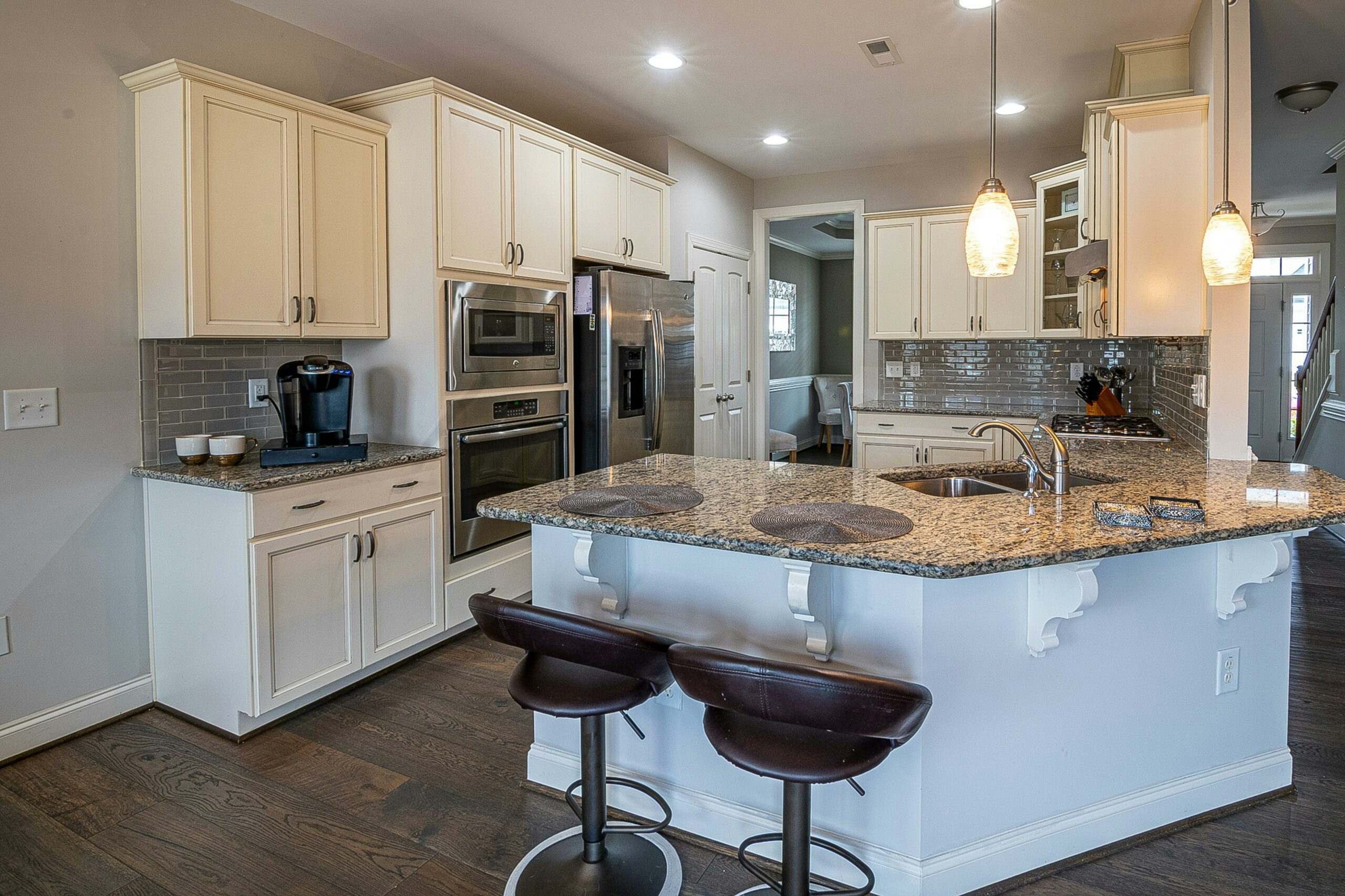
Evaluating the Durability of Different Countertops
When choosing a countertop material, it’s important to consider its durability. After all, countertops are subjected to daily use, spills, heat, and other potential sources of damage. Here, we’ll explore the durability of various countertop materials to help you make an informed decision.
Granite
Granite is known for its exceptional durability. It is a natural stone that can withstand heat, scratches, and stains. However, it is important to seal granite countertops regularly to maintain their durability and prevent staining.
Quartz
Quartz countertops are engineered stone surfaces that are highly durable. They are resistant to scratches, stains, and heat. Unlike granite, quartz countertops do not require sealing, making them low-maintenance and long-lasting.
Marble
Marble countertops are elegant and timeless, but they are not as durable as granite or quartz. Marble is a softer stone that is prone to scratches, stains, and etching from acidic substances. It requires regular sealing and careful maintenance to preserve its beauty and durability.
Concrete
Concrete countertops are incredibly durable and can withstand heavy use. They are resistant to heat, scratches, and stains. However, concrete is prone to cracking if not properly sealed and maintained. Regular sealing and occasional resealing are necessary to ensure the longevity of concrete countertops.
Butcher Block
Butcher block countertops are made from wood, which is not as durable as stone or concrete. While they can handle light to moderate use, they are susceptible to scratches, stains, and heat damage. Proper sealing and regular maintenance, including oiling, can help prolong the durability of butcher block countertops.
Laminate
Laminate countertops are affordable and come in a wide range of designs. However, they are not as durable as natural stone or concrete. Laminate can be prone to scratches, chips, and burns from hot pans. It is important to use cutting boards and trivets to protect the surface and avoid heavy impact.
Stainless Steel
Stainless steel countertops are highly durable and resistant to heat, stains, and bacteria. They are commonly used in commercial kitchens for their durability and easy maintenance. However, stainless steel can scratch easily, and fingerprints and smudges are more visible on its surface.
When evaluating the durability of different countertops, it’s essential to consider your specific needs, lifestyle, and budget. Each material has its own advantages and disadvantages, and finding the right balance between durability and aesthetics is key to choosing the perfect countertop for your space.
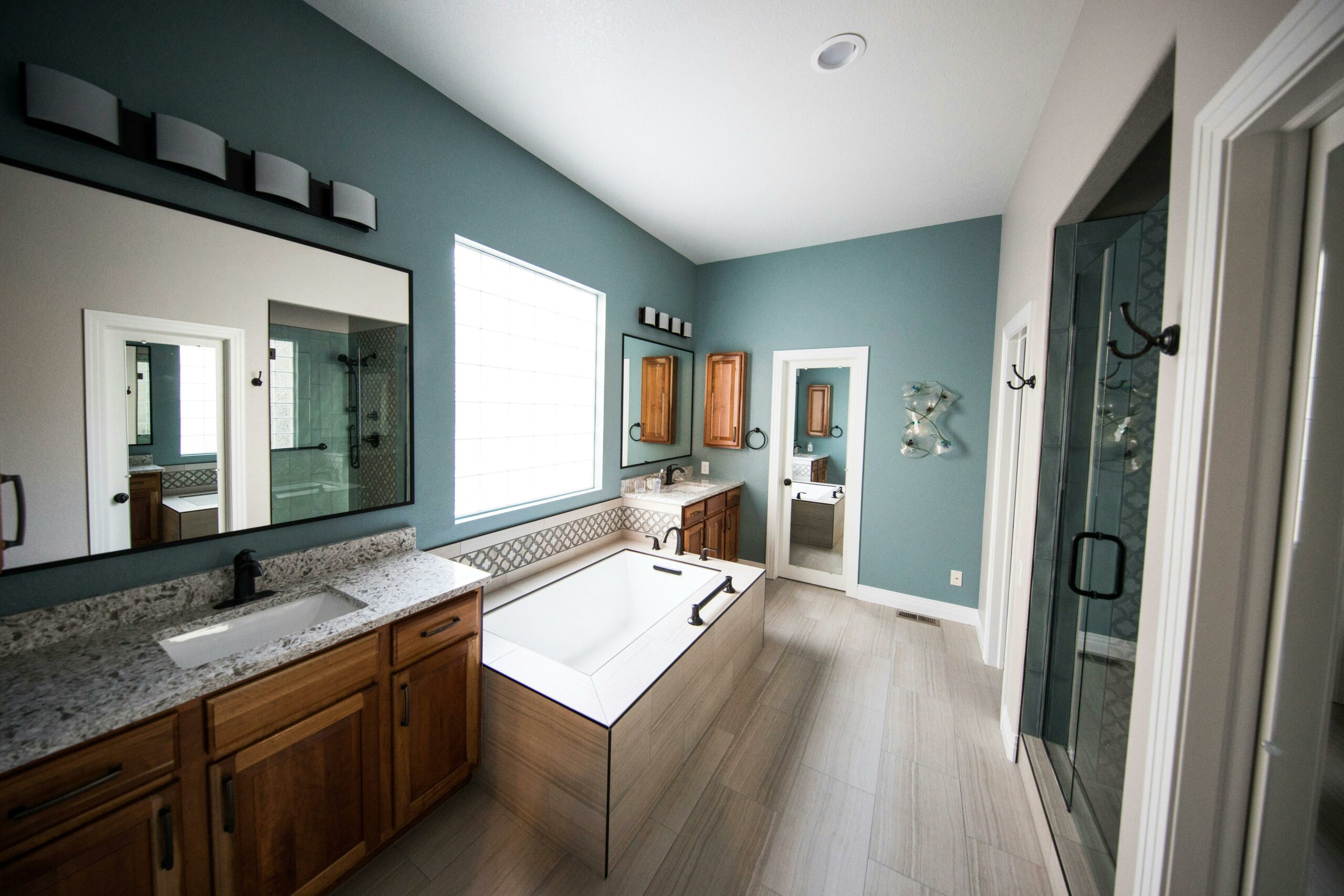
Types of Countertops Suitable for Bathrooms
When it comes to choosing countertops for your bathroom, there are several options available that offer both functionality and style. Here are some of the most popular types of countertops suitable for bathrooms:
1. Quartz
Quartz countertops are made from engineered stone and are highly durable and resistant to stains and scratches. They are available in a wide range of colors and patterns, making it easy to find a design that complements your bathroom decor. Additionally, quartz countertops require minimal maintenance and are non-porous, making them hygienic and resistant to bacteria.
2. Marble
Marble countertops add a touch of elegance and luxury to any bathroom. They are known for their unique veining patterns and come in various shades of white, gray, and black. While marble is a beautiful choice, it requires regular sealing to protect against stains and etching. It is also important to note that marble is a softer stone and can be more prone to scratches and chipping.
3. Granite
Granite countertops are a popular choice for bathrooms due to their durability and natural beauty. They are available in a wide range of colors and patterns, allowing you to create a unique look for your bathroom. Granite is heat-resistant and can withstand daily use without scratching or staining. However, it is important to seal granite countertops regularly to maintain their longevity.
4. Solid Surface
Solid surface countertops are made from synthetic materials and offer a seamless and smooth surface for your bathroom. They are available in a variety of colors and can be easily customized to fit any bathroom design. Solid surface countertops are non-porous, making them resistant to stains and bacteria. They are also easy to clean and maintain, requiring only mild soap and water.
5. Laminate
Laminate countertops are a budget-friendly option for bathrooms. They are made from layers of plastic and are available in a wide range of colors and patterns. Laminate countertops are easy to clean and maintain, but they may not be as durable as other countertop materials. They can be prone to scratching and may need to be replaced more frequently.
When choosing a countertop for your bathroom, consider your budget, style preferences, and maintenance requirements. Each type of countertop has its own advantages and disadvantages, so it’s important to weigh your options and select the one that best suits your needs.
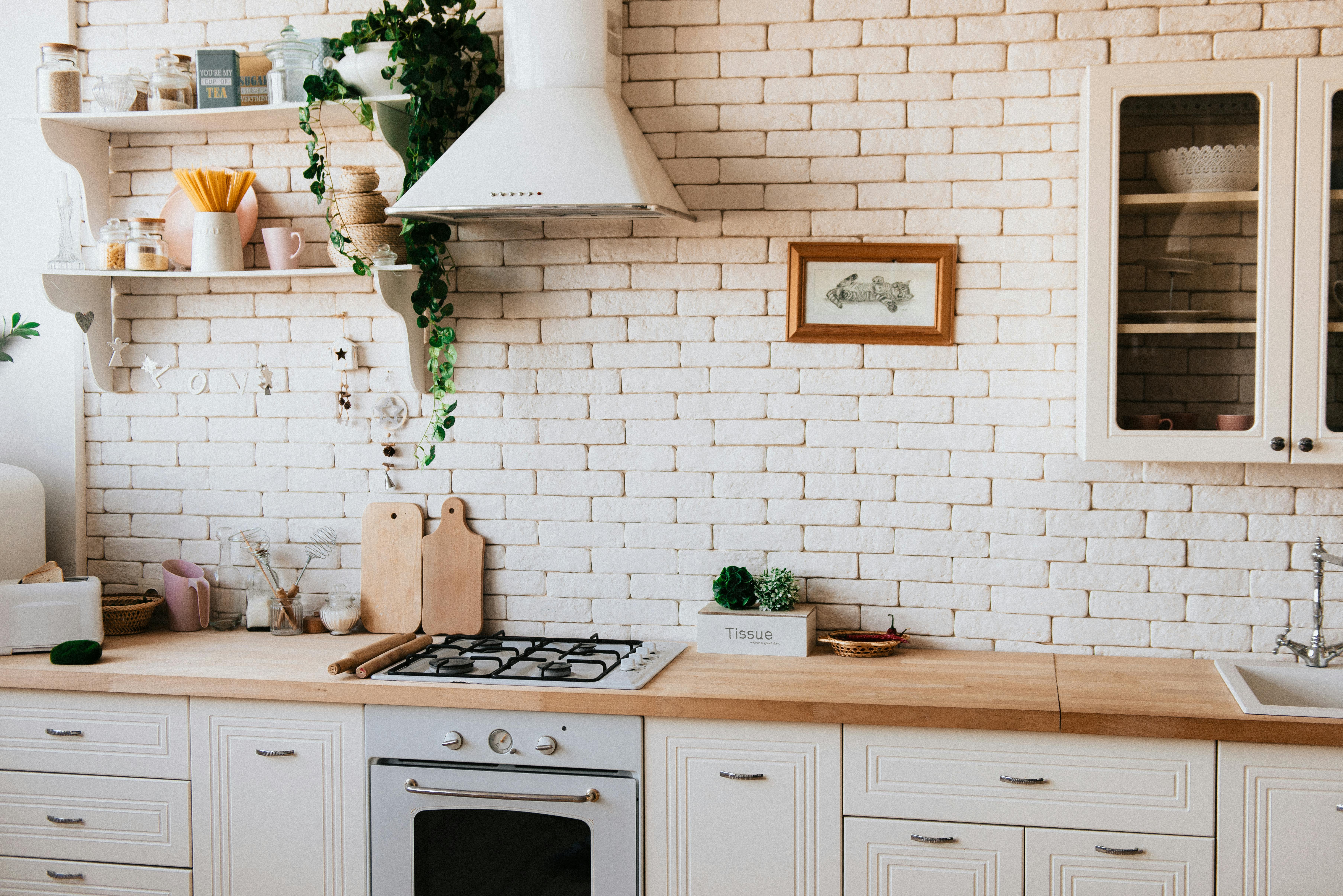
Eco-friendly Countertop Options
When it comes to choosing countertops for your home, it’s essential to consider not only their aesthetic appeal but also their impact on the environment. Fortunately, there are several eco-friendly options available that are both stylish and sustainable. Let’s explore some of the top choices:
1. Recycled Glass Countertops
Recycled glass countertops are made from crushed glass that is mixed with a binder to create a durable and visually stunning surface. These countertops come in a variety of colors and patterns, making them a versatile choice for any kitchen or bathroom.
2. Bamboo Countertops
Bamboo is a fast-growing and renewable resource, making it an excellent eco-friendly option for countertops. It is also incredibly durable and resistant to moisture and stains. Bamboo countertops can add a unique and natural touch to your space.
3. Paper Composite Countertops
Another eco-friendly option is paper composite countertops, which are made from a blend of recycled paper and resin. These countertops are not only environmentally friendly but also highly durable and heat-resistant. They come in a range of colors and textures, allowing you to achieve a customized look.
4. Concrete Countertops
Concrete countertops are a popular choice for those looking for an eco-friendly and modern option. They are made from a mix of cement, sand, and aggregate, and can be customized with different colors and finishes. Concrete countertops are long-lasting and can withstand heavy use.
5. Salvaged Wood Countertops
If you’re looking for a rustic and sustainable option, salvaged wood countertops are an excellent choice. These countertops are made from reclaimed wood, which reduces the demand for new timber. They add warmth and character to any space while being environmentally friendly.
6. Stainless Steel Countertops
Stainless steel countertops are not only sleek and modern but also eco-friendly. They are made from recycled materials and are 100% recyclable at the end of their lifespan. Stainless steel countertops are durable, hygienic, and resistant to heat and stains.
By choosing one of these eco-friendly countertop options, you can create a beautiful and sustainable space in your home. Consider your style preferences, budget, and environmental impact when making your decision.
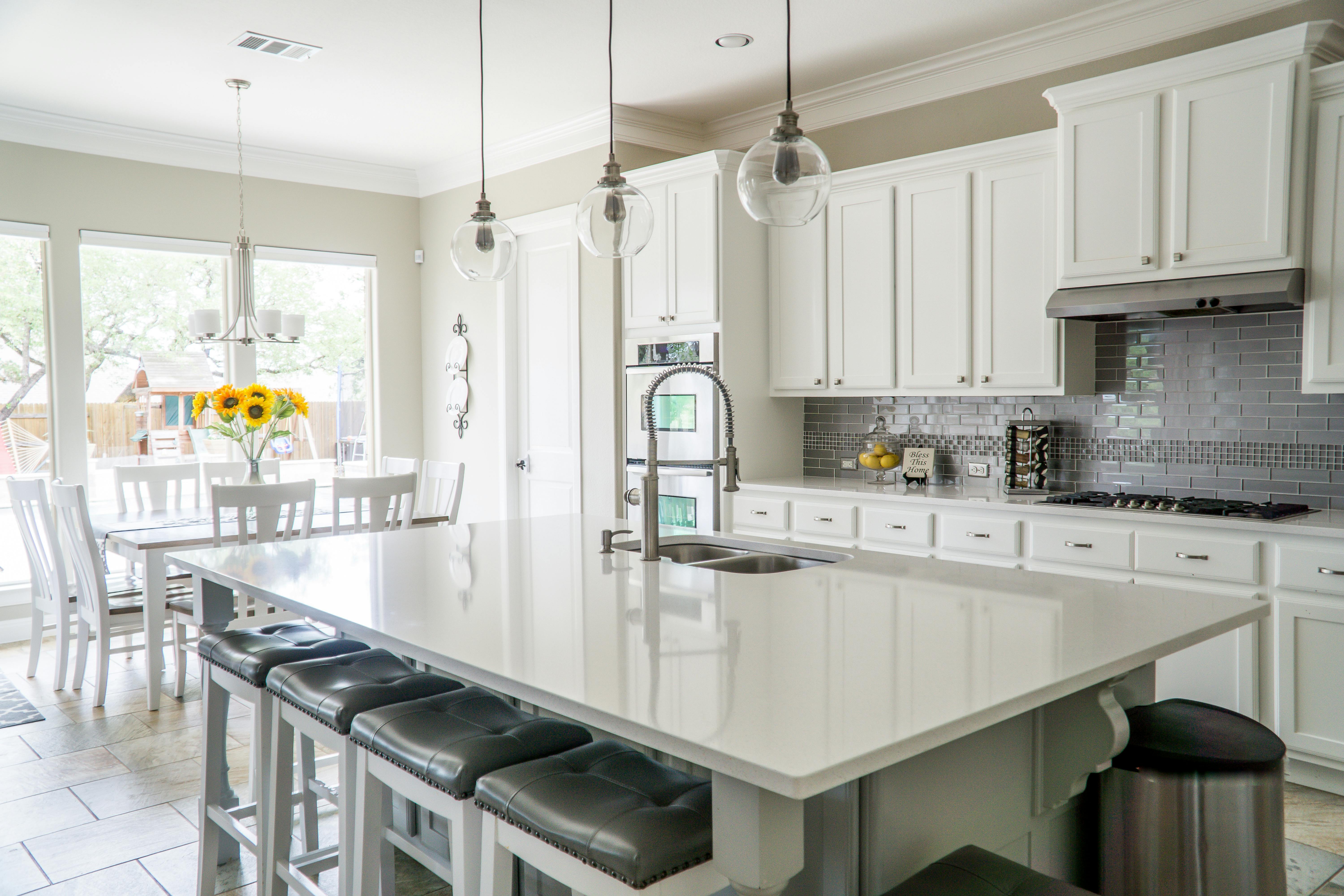
Cost Analysis of Various Countertop Materials
In this section, we will delve into the cost analysis of different countertop materials. It’s important to consider the financial aspect when choosing the right countertop for your space. Let’s explore the pricing factors and compare the costs of various materials.
Factors Affecting Countertop Costs
-
- Material: The type of material used for the countertop greatly influences its cost. Different materials have varying price ranges.
-
- Quality: Higher quality materials often come with a higher price tag. The durability and longevity of the countertop can affect its overall cost.
-
- Size and Thickness: The size and thickness of the countertop also impact the cost. Larger countertops or thicker slabs may require more material, leading to increased expenses.
-
- Installation: The cost of installation can vary depending on the complexity of the project and the expertise required. Professional installation may add to the overall cost.
-
- Additional Features: Countertops with added features such as integrated sinks, decorative edges, or custom designs can increase the cost.
Comparison of Countertop Materials
Now, let’s compare the costs of various countertop materials:
-
- Granite: Granite countertops are known for their elegance and durability. They can range from $50 to $200 per square foot, depending on the quality and rarity of the stone.
-
- Quartz: Quartz countertops offer a wide range of colors and patterns. They typically cost between $60 and $150 per square foot, including installation.
-
- Marble: Marble countertops exude luxury and sophistication. They can range from $70 to $200 per square foot, depending on the quality and type of marble.
-
- Laminate: Laminate countertops are a budget-friendly option. They generally cost between $20 and $50 per square foot, making them a popular choice for those on a tight budget.
-
- Concrete: Concrete countertops provide a unique and customizable look. They typically range from $75 to $150 per square foot, including installation.
-
- Butcher Block: Butcher block countertops offer a warm and natural appeal. They can cost between $40 and $100 per square foot, depending on the wood species and thickness.
-
- Stainless Steel: Stainless steel countertops are durable and easy to clean. They generally range from $75 to $150 per square foot, including installation.
It’s important to note that these prices are estimates and may vary depending on factors such as location, supplier, and additional customization.
By considering the cost analysis of various countertop materials, you can make an informed decision that fits your budget and meets your design preferences.
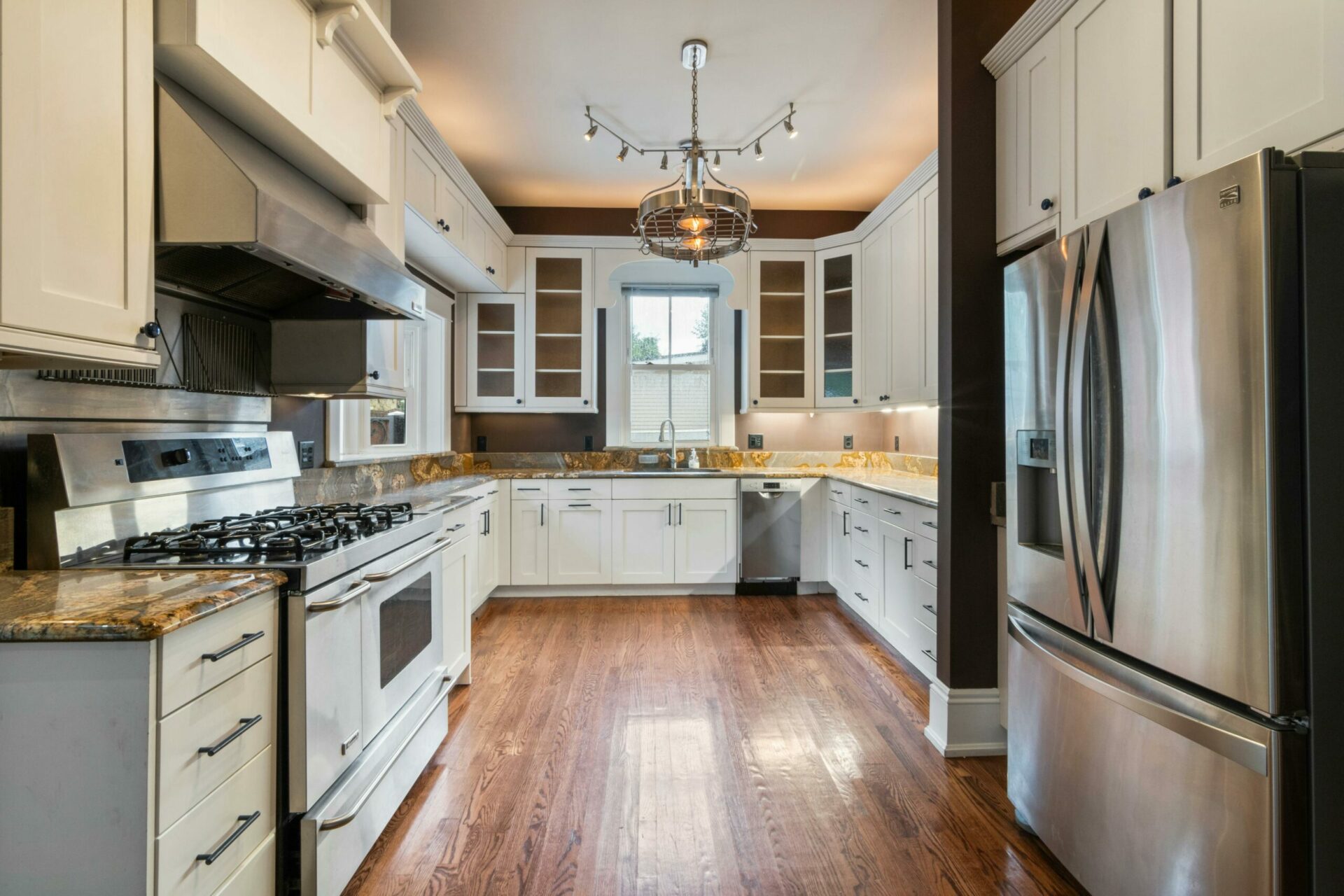
Maintaining Different Types of Countertops
Maintaining your countertops is essential to keep them looking beautiful and to extend their lifespan. Different types of countertops require different care and maintenance routines. In this section, we will explore some general tips for maintaining various types of countertops.
1. Granite Countertops
Granite countertops are known for their durability and natural beauty. To keep them looking their best, make sure to clean up spills immediately to prevent staining. Use a mild soap and water solution or a granite-specific cleaner to clean the surface. Avoid using abrasive cleaners or scrub brushes that can scratch the surface. It’s also recommended to seal your granite countertops regularly to protect them from stains and damage.
2. Quartz Countertops
Quartz countertops are engineered stone surfaces that are resistant to stains, scratches, and heat. They are relatively low-maintenance and easy to clean. Use a mild soap and water solution or a quartz-specific cleaner to clean the surface. Avoid using abrasive cleaners or scrub brushes. Quartz countertops do not require sealing as they are non-porous.
3. Marble Countertops
Marble countertops are elegant and timeless, but they require more care and maintenance compared to other countertop materials. Marble is porous and prone to staining, so it’s important to clean up spills immediately. Use a mild soap and water solution or a marble-specific cleaner to clean the surface. Avoid using acidic or abrasive cleaners that can etch the marble. It’s recommended to seal your marble countertops regularly to protect them from staining and etching.
4. Laminate Countertops
Laminate countertops are affordable and easy to maintain. To clean laminate countertops, use a mild soap and water solution or a laminate-specific cleaner. Avoid using abrasive cleaners or scrub brushes that can scratch the surface. Laminate countertops are not heat-resistant, so always use trivets or hot pads to protect the surface from hot pans or dishes.
5. Stainless Steel Countertops
Stainless steel countertops are popular in commercial kitchens for their durability and easy maintenance. To clean stainless steel countertops, use a mild soap and water solution or a stainless steel cleaner. Avoid using abrasive cleaners or scrub brushes that can scratch the surface. It’s important to dry the surface after cleaning to prevent water spots or streaks.
6. Wood Countertops
Wood countertops add warmth and natural beauty to any kitchen. To clean wood countertops, use a mild soap and water solution or a wood-specific cleaner. Avoid using harsh chemicals or abrasive cleaners that can damage the wood. It’s important to regularly oil or seal the wood to protect it from moisture and stains.
By following these maintenance tips, you can ensure that your countertops stay in great condition for years to come. Remember to always check the manufacturer’s guidelines for specific care instructions for your countertop material.
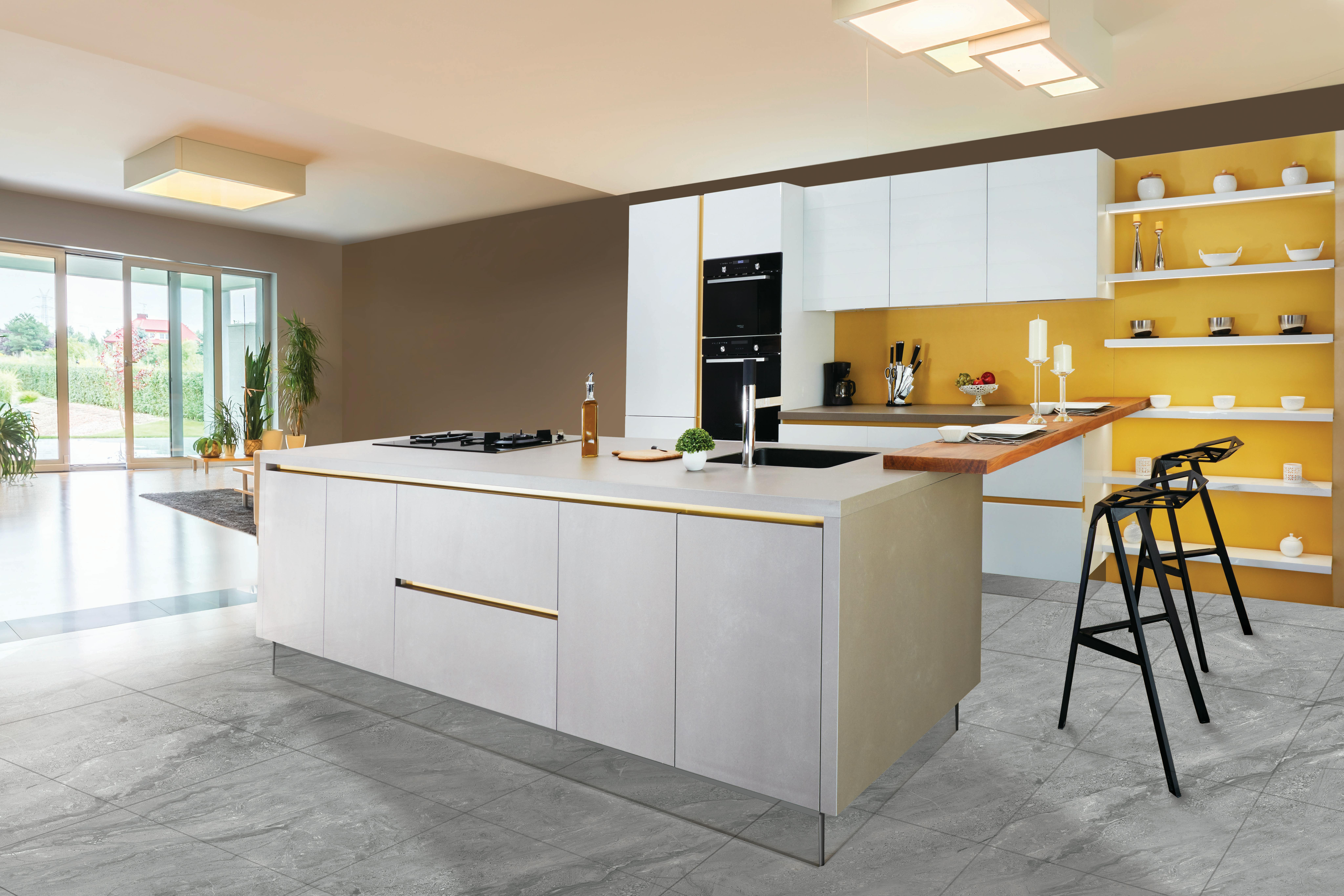
Countertops for Contemporary Design Styles
When it comes to contemporary design styles, the choice of countertops plays a crucial role in achieving the desired aesthetic. Here, we will explore some countertop options that are popular in contemporary design:
1. Quartz Countertops
Quartz countertops are a top choice for contemporary design styles due to their sleek and modern appearance. Made from a combination of natural quartz and resin, these countertops offer a wide range of colors and patterns to choose from. They are also highly durable and resistant to stains and scratches, making them a practical choice for busy kitchens.
2. Concrete Countertops
Concrete countertops have gained popularity in contemporary design for their industrial and minimalist look. They can be customized with different textures, colors, and finishes to match the overall design scheme. Concrete countertops are known for their durability and heat resistance, making them suitable for both kitchens and bathrooms.
3. Stainless Steel Countertops
Stainless steel countertops are a favorite in contemporary kitchens for their sleek and professional appearance. They are highly resistant to heat, stains, and bacteria, making them a hygienic choice. Stainless steel countertops are often paired with modern appliances and fixtures to create a cohesive and stylish look.
4. Marble Countertops
Marble countertops exude elegance and luxury, making them a popular choice for contemporary design styles. Their natural veining and unique patterns add a touch of sophistication to any space. However, it’s important to note that marble is a porous material and requires regular sealing to prevent staining and etching.
5. Glass Countertops
Glass countertops offer a sleek and transparent look that is perfect for contemporary design. They are available in various colors and can be backlit to create a stunning visual effect. Glass countertops are non-porous, easy to clean, and resistant to heat and stains, making them a practical choice for modern kitchens.
6. Solid Surface Countertops
Solid surface countertops, such as Corian, are a versatile option for contemporary design styles. They are available in a wide range of colors and can be seamlessly integrated into any space. Solid surface countertops are non-porous, durable, and easy to maintain, making them suitable for both kitchens and bathrooms.
When choosing countertops for contemporary design styles, it’s important to consider the overall aesthetic, durability, and maintenance requirements. By selecting the right countertop material, you can create a stylish and functional space that reflects your personal style.

